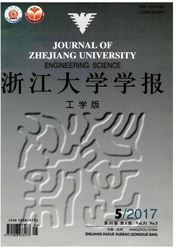

 中文摘要:
中文摘要:
【摘要】基于DNA纳米技术的各种超分子体(功能单元),能实现信息存储、计算、移动和靶向送药等功能,其纳米结构的控制精度达到了原子级。基于DNA纳米技术的信息存储和计算模式,具有高度并行性、高密度和低能耗,天生适用于大量信息的存储和并行处理。面对这种新兴的计算模式,人们研究和开发了各种计算模型,讨论其对传统密码体系的影响和DNA存储信息的安全问题,包括密钥搜索、信息加密、信息隐藏及认证等。文章综述了基于DNA纳米技术的各种计算模型对传统加密算法的影响,概述了利用DNA纳米技术进行加密解密、认证签名的方案和技术,总结了当前基于DNA纳米技术的信息安全领域研究中存在的问题并展望了DNA计算及其在信息安全和存储领域的应用前景。
 英文摘要:
英文摘要:
Based on DNA nanotechnology, various supramolecular (functional units), which can control the nanostructures accuracy of the atomic level, may achieve information storage, computing, moving, targeted drug delivery, and other functions. With the characteristics of ultra-large-scale parallelism, high-density stor- age, and low power consumption, information storage and computing models based on DNA nanotechnology are inherently suitable for mass storage and parallel processing of information. Such an elegant computing mod- el inspired people to research and develop various computing models, apply them to traditional cryptography, and discuss the security issues about DNA storage, including key search, information encryption, information hiding, and authentication. This paper reviews the impacts of various computing models based on DNA nano- technology to traditional cryptography, outlines the methods based on DNA nanotechnology applied to encryp- tion and decryption, authentication and signature. At last, the paper summarizes the existing problems in the DNA nanotechnology-based information security and the prospects of DNA nanotechnology in the field of information security and storage.
 同期刊论文项目
同期刊论文项目
 同项目期刊论文
同项目期刊论文
 期刊信息
期刊信息
